Introduction

This is the Bajaj Pulsar NS400Z. It is late to the 300-400cc party. However, it's going all out with its attempt to disrupt the segment with a competent price tag of Rs 1.85 lakh (ex-showroom), which is introductory, and an impressive amount of features. It gets the same engine as the Dominar but some of its cycle parts, dimensions, and geometry are similar to the NS200. So, in theory, it should offer the punchy performance of the Dominar and the agility and lightness of the NS200. But is that the case in the real world? And why is it so affordable? To answer these questions, we spent a few hours riding the Pulsar NS400Z on the streets and took a brief spin around Bajaj’s testing track.
The Visuals

At first glance, the biggest Pulsar might look identical to the smaller NS200. However, give it a scrutinising look and the differences are recognisable. The front fascia of the NS400 looks more dramatic with prominent Z-shaped LED DRLs flanking a round projector headlamp. While the fuel tank is the same as the 200, the extensions are sharper and the radiator cowl is bulkier. Plus, the tail section is marginally sleeker, the front forks are chunkier golden units and the rear tyre hugger looks more minimalistic with its mounting points only on the left side. In a nutshell, it doesn’t really look bigger than the NS200 but has a fresher and smarter appeal to it.

The overall quality levels are acceptable for the most part. The components are sturdily put together and there aren’t any noticeable uneven panel gaps. However, the quality of the switchgear feels substandard. The buttons on the left side require some effort to operate and aren’t very tactile. I also noticed a bit of rusting on the bolts of the handlebar. These aren’t major issues but rather areas of improvement.
The Package

This is the most feature-loaded motorcycle to have come out of Bajaj’s stable yet. It gets a ride-by-wire throttle system along with four ride modes (road, rain, sport, and off-road) and each of these modes offers varying levels of ABS intervention and different throttle responses. The power and torque output are also altered to some extent. Moreover, there is traction control which can be switched off.

The NS400Z also has the most data-intensive instrument cluster among all Bajaj bikes. The colour LCD dash gets a small secondary display on the right side which can be used to select ride mode and TC setting, activate Bluetooth, use navigation, alter brightness, refer to trip details, access lap timer, and other miscellaneous data. The primary display shows all the essential info like tachometer, speedometer, gear position, fuel gauge, activated ride mode, fuel level, clock, and odo. Sitting under this cluster is a USB charging port while the clutch and brake levers are five-step adjustable. Not to forget, the lighting setup is full LED.

The engine is the same 373cc, liquid-cooled unit as the Dominar 400 but it gets a larger sprocket at the rear which has one teeth more than the Dominar. The power and torque output numbers remain the same at 39.5bhp and 35Nm with a six-speed gearbox and an assist and slipper clutch. While the perimeter frame is also identical to the Dominar, the suspension setup, box-type swingarm, and Grimeca brakes are unique to the NS400. The wheels, meanwhile, are a revised version of the Pulsar NS200 and they are wrapped with MRF Zapper tyres, radials at the rear and cross-ply at the front. These elements have not just helped Bajaj save weight over the Dominar but also input costs.
The Pulsar NS400Z weighs 174kg (kerb). While that’s 18kg less than the Dominar, it’s also 14kg heavier than the NS200. To compensate for that weight gain and retain the same agility as the NS200, the wheelbase has been shortened by 20mm and the rake angle has been steepened by 0.8 degrees.
The Ride

The Pulsar NS400 is a likeable motorcycle on the road. The engine feels a bit mellow till 4,000rpm but starts pulling spiritedly beyond that. The sweet spot lies between 4,000 to 7,000rpm where the motorcycle feels lively and overtaking vehicles in the city is effortless. Even on the highway, you can do 100-120kmph without the engine feeling strained. The throttle response is direct, gear shifts are slick, and the clutch can be operated with a single finger.

However, our test bike felt buzzy until 5,000rpm, followed by the vibrations reducing till 7,000rpm and coming back and staying till its redline of 10,000rpm. Overall, it felt vibier at city speeds than on the highway. As for the ride modes, the difference in throttle response and ABS intervention is noticeable only when you switch from sport to rain or off-road.

It feels like a typical NS in terms of handling on the streets. It switches lanes with minimal effort and flicking your way through traffic is enjoyable and quick. Similarly, the brakes do a decent job of shedding speed with good bite from the front disc while the rear brake is very progressive. The front could do with a better feel though.

The ride quality is slightly on the stiffer side but not uncomfortable or jarring by any stretch. Minor undulations are ironed out cleanly while the bigger and sharper hurdles demand you to go a bit easy. Even on the highway, where you encounter slight dips and crests, the bike feels planted. Even the riding position it offers is slightly sporty yet upright enough to feel natural and comfortable.
At the track, where we got a brief 15-minute session, the strong mid-range performance of the engine proved to be a boon. Corner exits were quick, even if I was running a gear higher. On the straight, it was impressive to see it cross 160kmph, despite Bajaj claiming a top speed of 154kmph.

The handling was a mixed bag. The steering response was sharp, the chassis felt communicative and getting the bike to turn was seamless. However, the rear wallowed a bit around tighter corners and the feedback from the front tyre wasn’t great which robbed me of some confidence. There could be multiple factors responsible here such as the tyre pressure being too high or the rear sag not being set up appropriately for track use. Having said that, the bike never did anything scary or funny around corners.

The brake showed some sign of fading during the last lap but it was negligible. What really worked in my favour was the accommodating nature of the bike. I could move back on the seat and lock my knees to the tank snuggly courtesy of the bike’s mid-section being slim. Even the cornering clearance is good and I never managed to scrape the pegs.
Verdict

The Pulsar NS400Z offers potent engine performance, comfortable ergonomics and ride quality, decent stopping power, and agile handling. Besides being a fun-to-ride city bike, it should also be a good touring machine but we can verify that only after a comprehensive road test review. Even the feature list is long enough to match or outdo its rivals.

Where it truly steals the show though is the price tag. At Rs. 1.85 lakh (ex-showroom), it sits very close to the Suzuki Gixxer 250 while being significantly cheaper than the Bajaj Dominar 400, Triumph Speed 400, and the TVS Apache RTR 310. Although it doesn’t do anything extraordinarily good, it will satisfy the needs of someone who wants to upgrade from a 150-200cc motorcycle to something that is not just bigger and more powerful but also on the affordable side of the spectrum.
The area it could improve on is vibrations which are inconsistent yet noticeable almost across the rev range. It could also do with better quality switchgear. Lastly, the design should’ve had more substance and muscle for a bigger and more premium visual appeal than the rest of the NS offerings.
Photography by Kaustubh Gandhi
Gallery
1/34
Bajaj Pulsar NS400Z Clutch Lever
Double Tap to Zoom
















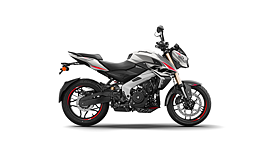


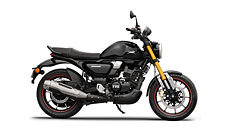
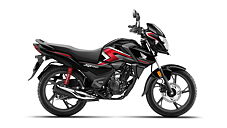
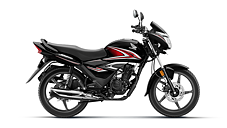

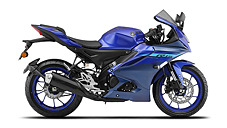
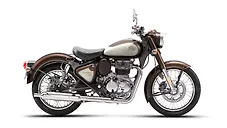
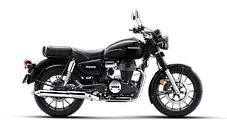
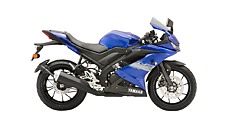
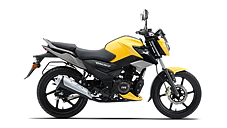
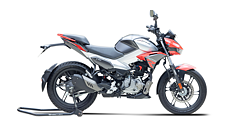
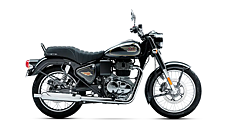
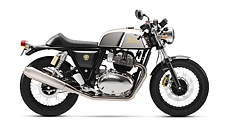
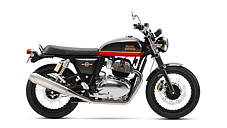
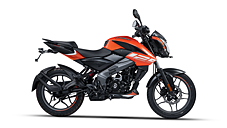
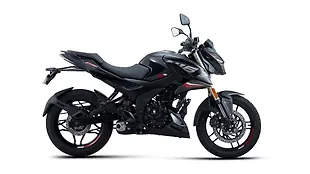
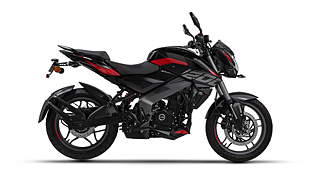





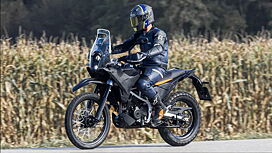
![KTM 390 Adventure X [2025] KTM 390 Adventure X [2025]](https://imgd.aeplcdn.com/272x153/n/cw/ec/190885/390-adventure-x-2025-right-side-view.jpeg?isig=0&q=80)